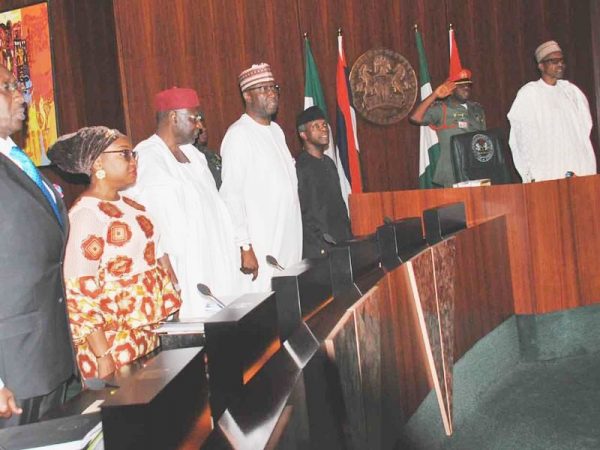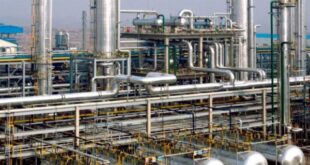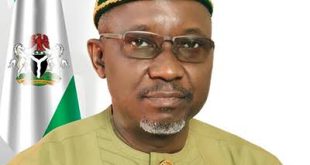- IOCs: Investment confidence back with payment of JV cash call debts
The National Executive Council (NEC) has directed the Nigerian National Petroleum Corporation (NNPC) and Ministry of Finance to undertake an audit exercise to determine the actual volume of petrol consumed daily in Nigeria.
This is coming as the International Oil Companies (IOCs) operating in the country have disclosed that investment confidence and appetite were gradually coming back to the industry following the settlement of joint venture (JV) cash call arrears owed them by the NNPC.
NNPC’s Chief Operating Officer (COO), Downstream, Mr. Henry Ikem-Obih, said Wednesday at the 2018 edition of the annual Nigeria Oil and Gas (NOG) Conference and Exhibition in Abuja, that the audit would also include inputs from the World Bank.
Ikem-Obih stated that irrespective of the current high cost of fuel imports, the country’s refineries were currently selling petrol at N103 per litre.

While responding to questions on the current consumption level of the country, he noted that the country’s daily fuel consumption was currently not known because of a number of factors, which he said include, smuggling and the various consumption pattern of the commodity among Nigerians.
“We are presently in a joint project with the Federal Ministry of Finance. We are doing a study around consumption, to determine the actual consumption by the people. We have to determine what we call the daily load out or the evacuation, as against the actual consumption; what people go to the pump every day to buy for their cars, for their generators at home and for other uses of petrol,” Ikem-Obih said.
He explained that in terms of daily truck out from depots around the country and the records of the Petroleum Products Pricing Regulatory Agency (PPPRA) and Department of Petroleum Resources (DPR), the NNPC trucked out 48 million litres daily in 2016 and 50 million litres in 2017.
“This is why NEC has mandated that we work with the Federal Ministry of Finance. We also had meeting with the World Bank about six weeks ago, and we are trying to progress in a global study that would help us get around the actual numbers of what we consume in Nigeria,” he said.
He added that the nation was challenged by cross-border smuggling, explaining that Nigeria remained the cheapest source of petrol in the West African sub-region as its neighbours were selling at over 200 per cent higher than its price.
“If you go to Niger, Cameroon, then it is in the 400 per cent region; for the rest of the countries, it is about N360 to N370, as against the N145 per litre that we sell. That is sufficient incentives for those who want to take the product across the border to sell and make a good margin,” he added.
He said, however, that the NNPC was working closely with the Nigeria Customs Service, the Department of State Services (DSS), and other security agencies to ensure the situation improved significantly.
In a related development, the IOCs have disclosed that investment confidence and appetite were gradually coming back to the industry following the settlement of JV cash call arrears owed them by the NNPC.
The NNPC in December 2016 got a discount of $1.7 billion from $6.8 billion cash call debt to its JV partners, and was asked to pay $5.1 billion instead.
It subsequently started paying off the debt, which the IOCs at the 2018 edition of the annual Nigeria Oil and Gas (NOG) Conference and Exhibition in Abuja acknowledged.
Taking turns to speak on their perspectives about what needed to be done to unlock investment potentials in the industry, the chief executives of the IOCs said they were glad the issue which obstructed negotiations for investments in Nigeria at their boards, was now off.
The Country Chair of Shell Companies in Nigeria and Managing Director of SPDC, Osagie Okunbor, said: “For as long as I have been in this industry, we have been discussing cash call as a never-ending issue, I think that we were able to sit down together as an industry and government to try and tackle that issue and we should not underrate the importance of that.
“What that has done is that it opens up the appetite to have a conversation about investment. Nigeria is competing for capital with every other country in the world and sometimes we forget that and think that we are world unto ourselves, but the reality is that each of these companies operate in 20, 30, 80 countries and people are competing for capital.”
With the JV cash call debts off, added Okunbor, investors would be more confident in stepping forward to drop more funds.
He stated, however, that the industry must insist on making the arrangement work, adding: “We all need to put our hands on the plough to ensure it does not derail. We cannot take it for granted that we have a funding structure that works and assume it will continue to work.”
Confirming the position of Okunbor on the cash call payments, the Managing Director of Chevron Nigeria Limited, Jeff Ewing, stated: “The government and our partners have done some good things on the JV arrears. The execution of those agreements have gone very well, and it has really boosted our confidence in the JV.
“Some of the things that have happened have increased our activities in the JV because we have some confidence.”
Ewing, however, explained as regards uncertainties in the industry: “Right now the oil price is increasing, it is giving the oil companies a little more confidence in investing but we are still very selective in where we send our money and how much capital we have to spend.
“And, so, Nigeria needs to be competitive globally in the fiscal policies and ease of doing business. So, that is the discussion we have been having with the government and making sure that they understand the implication of the competitiveness of the industry.”
Similarly, the Managing Director of Mobil Producing Nigeria, Paul McGrath, explained: “To unlock the potentials in the country, we need first of, certainty. The recent work that is being done in the petroleum industry bill and the reform in the national assembly, is an excellent piece of work, but it needs to have an end result.
“We need to have an industry reform bill or set of bills that will attract international investment not push it away. I’ve been very encouraged with the dialogues we’ve had with the national assembly and the technical teams till date.
“They have listened, they are listening and tried to engage the industry and I think that is very interesting but at the end of the day, we need to stop talking about industry reform, have industry reform and then move on and unlock the potential.”
 MMS PLUS NG – Maritime, Aviation, Business, Oil and Gas News Online Newspaper with coverage in Maritime, Oil and Gas, Aviation, Power and Energy as well as Financial News
MMS PLUS NG – Maritime, Aviation, Business, Oil and Gas News Online Newspaper with coverage in Maritime, Oil and Gas, Aviation, Power and Energy as well as Financial News










